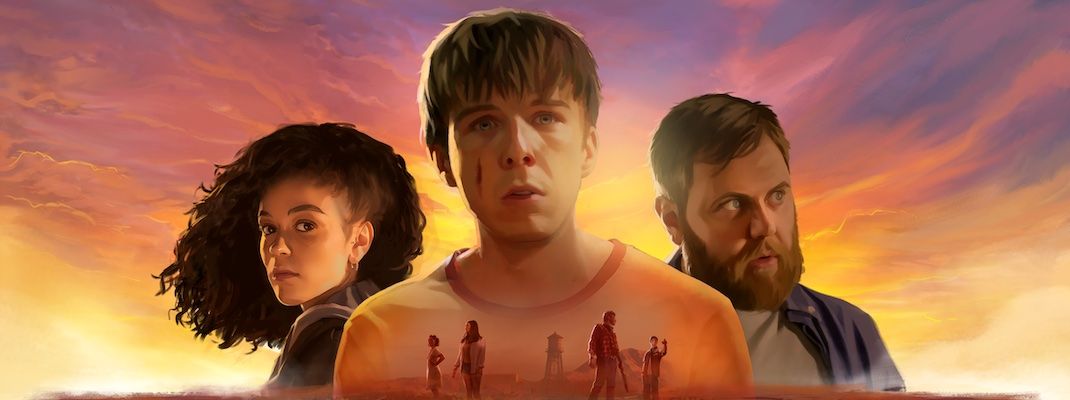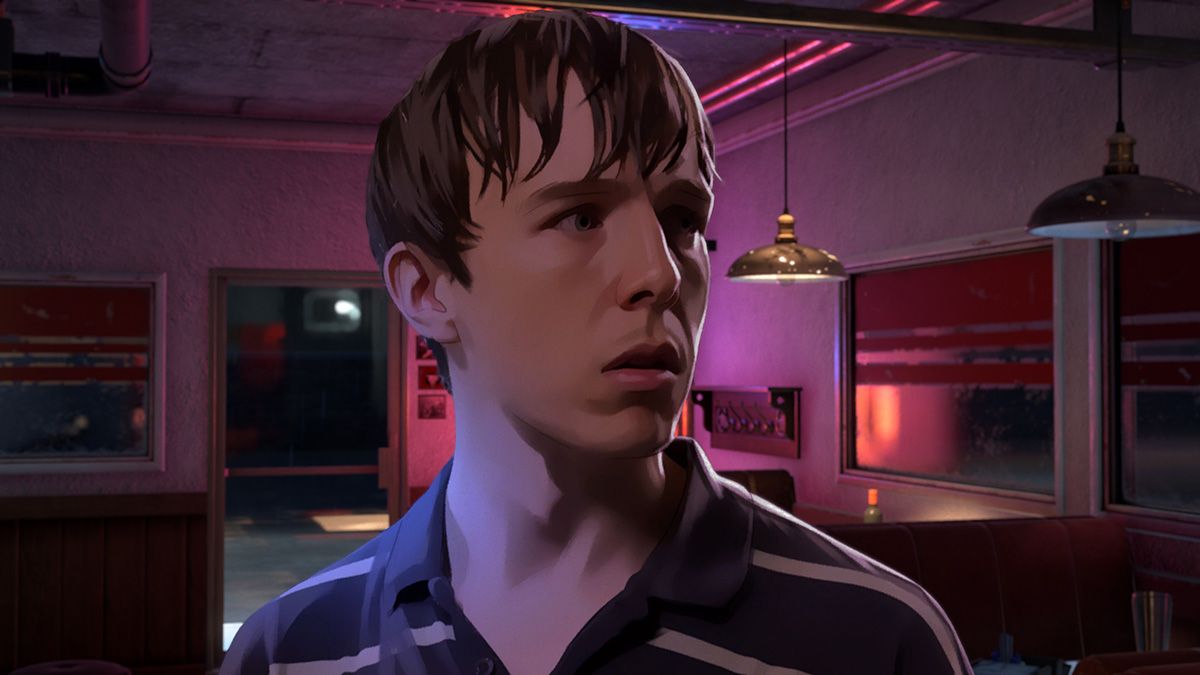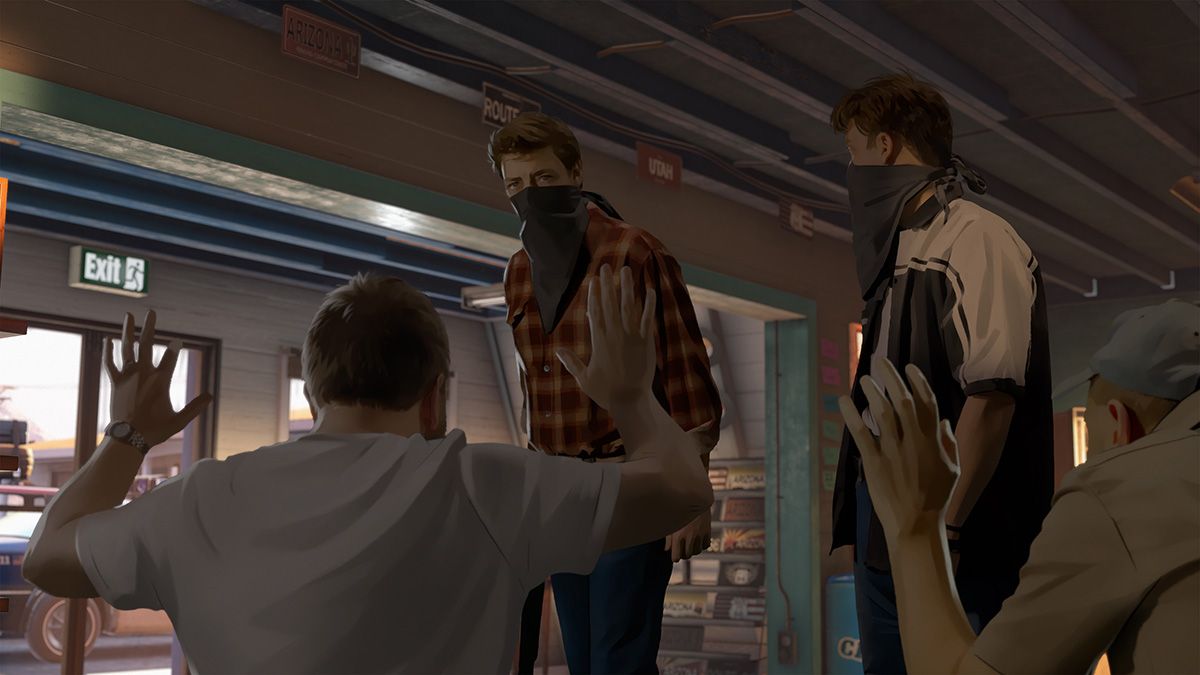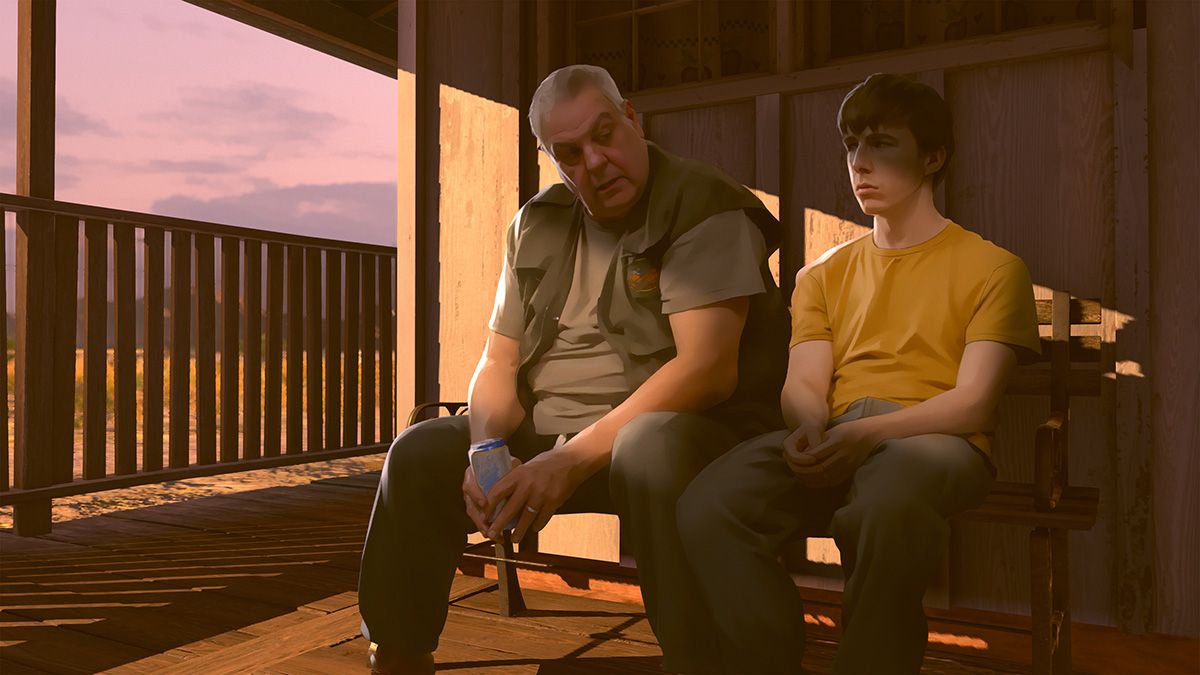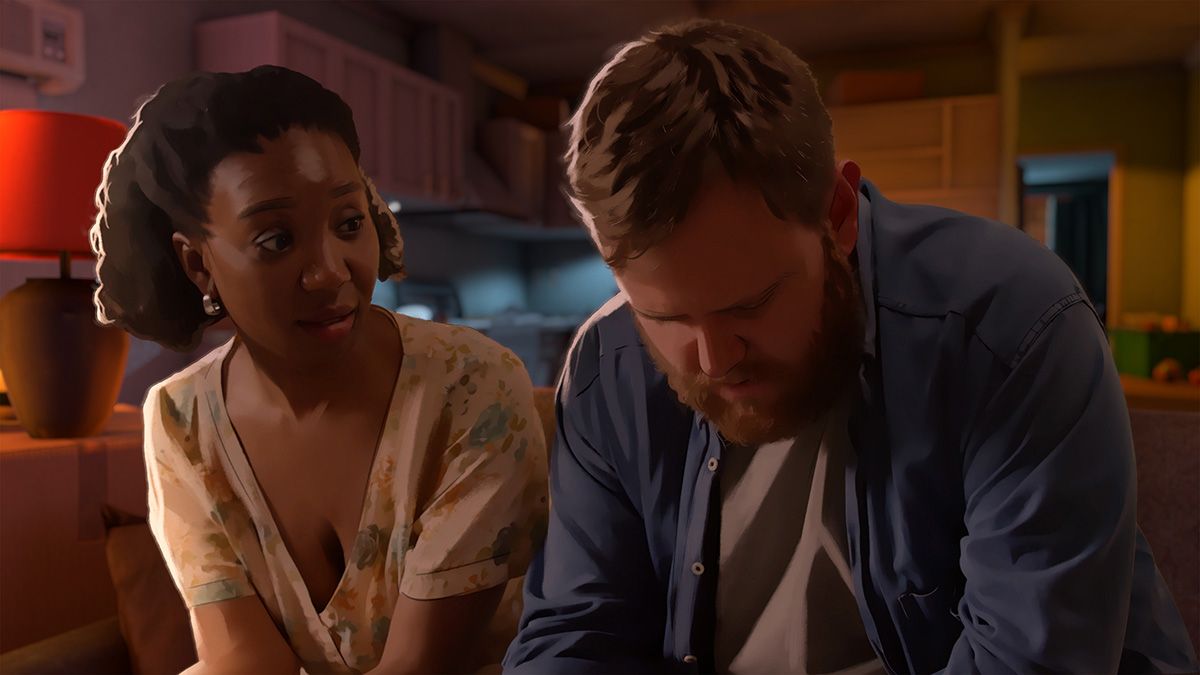One needn't be a dedicated fan of a genre to illicit some degree of hope that something will pop up that looks different than the rest. Anyone with any degree of sense wouldn't wish for a game -- any game -- to turn out bad. Park the inevitability of reality to one side and we'd all want everything to turn out great, but there's joy to be had in stumbling into something you may well have had little-to-no expectations for going in. Risky it might be to go off word-of-mouth, Supermassive's Until Dawn remains (for me at least) the bar with which all interactive "choose your path" games are now [un]knowingly aiming to supersede. Regardless of what you yourself may think about how involved or indeed interactive this subset of adventure games may be, there's still a lot you can do with the presentation and elements surrounding player-choice to give such releases an air of intrigue. At their most tepid, satisfactory entertainment that may not be enhancing the established formula...but in rare spots, the kind of game that finds a way to break from out that mold.
On that basis, it's not surprising to find As Dusk Falls hoping to visually set itself apart from the Supermassive's and the Quantic Dream's of present. As Dusk Falls betting a sizable amount of its figurative chips on the way it orchestrates its major scenes and moments of divergence. That latter name-drop isn't entirely unwarranted of course; developer Interior Night led by a former Quantic alumnus which on the surface, would suggest that the studio's debut does at least lend itself to experience and knowledge with how these kinds of games should be structured. And sure, taken from as broad a perspective as possible, As Dusk Falls feels like a game made by a team that acknowledges (but understands, most importantly) what additions and quality-of-life mechanics have helped this genre in recent years. The diagram-like illustrating of potential branching paths you can navigate mid-chapter and added temptation to go back and replay key moments; the tense "ticking clock" scenarios requiring you to act fast but cleverly so. And lastly, those difficult decisions wherein you're genuinely torn between two choices that, in typical fashion, will undoubtedly have some form of repercussion one way or another.
You might at this point be wondering why there's such a lack of discussion around its art-style. Specifically the way characters in As Dusk Falls are portrayed through stills -- stylized, static captures of the actors, expressing different emotions and reactions to compliment the given scenario. The only manner of animation in the game being that of such things like simple foliage, fire and the occasional moving vehicle. And during the opening chapter or so, the aesthetic does naturally have its charm and novelty. But that doesn't mean it works across a whole game -- even for something like As Dusk Falls wherein a single completed run, regardless of end result, will last you on average between six and seven hours. It's far from the only reason why players will want to see this game through to its multiple conclusions. But while that's not necessarily a bad thing -- and lends itself to some modicum of praise on some aspects of the writing -- sad as it is to report, As Dusk Falls' presentation in so far as its choice of "animation" not only loses its luster long before we reach the half-way mark, but like so much of As Dusk Falls, feels like a missed opportunity.
When focusing specifically on its visuals to begin with, it's not just down to how awkward and dare I say amateurish some of the execution of the game's more "action-orientated" scenes are. Comical it may be in the brief moments where a still of a character and a moving vehicle are working in tandem...and your only response is just how awkward the scene appears. But even the animated aspects seem too lacking in necessary polish for the gravity or stakes of said scenes to land. Like the equivalent of watching behind-the-scenes "pre-alpha" animation, long before all the niceties and touch-ups are added, something just feels off about the way the game goes about directing its scenes. Pleasant as select scenes may be in still form -- with contrasted palettes of color -- in motion, the effect is less so. So given this is a tale of tension and left-field turns alike, As Dusk Falls' aesthetic does unfortunately feel like it's taking away from the immersion rather than adding to it. Much of what the game gets right in its writing and its genuine moments of surprise (via one's choices affecting the narrative) working not because of the aesthetic, but despite it.
It's for these reasons why As Dusk Falls fortunately manages to sidestep any underlining conclusion of being a total dud. Even if, on the basis of its writing and very structure of player-deduction alone, the game is not without its own issues concerning half-baked ideas, missed opportunities and where exactly the narrative chooses to focus on. Firstly the good: As Dusk Falls manages to get the basics right when it comes to players being put in tense situations. Scenarios that so often fall down to picking one of two difficult decisions. Moments wherein you're likely attempting to think two, maybe even three steps ahead -- knowing full well how this sub-genre of game so often tries to pull the rug from under you, even in later scenes -- only for the game to reveal it's always one step ahead of your own self-assured deductions. If nothing else, As Dusk Falls does manage to illicit moments of surprise and painful hindsight that that prior branching route may have been the wrong decision. One moment, without spoiling any of the details, throwing a red herring in leading me to believe one overly-blatant bit of dramatics was the big pay-off, only to throw something at me unexpectedly seconds later.
Pushing past the basics, though, As Dusk Falls does at least show some suggestion that it's carrying a few tricks of its own. The notable one being the fact that in moments of choosing a dialogue option, not all choices will immediately appear. Certain lines/actions only becoming visible after a certain amount of time has passed. Granted, it's not the most complex of additions, but it does encourage players not to rush their way to a decision. It's just a shame that this is the only real means by which the game plays and experiments with the formula, not least in the more tense moments. Here then is where we get to its failings and where that feeling of missed opportunity begins to creep in. For example, in scenes where two different groups of characters are talking -- the group the player-character is a part of, alongside another group chatting away in the near distance -- it would've been interesting to see the game play with the concept of eavesdropping and requiring players to attempt splitting focus between either conversation. Maybe overhear a vital bit of information or, as a consequence, risk missing out if one's focus isn't properly utilized. The only means by which the game somewhat toys with this idea is via quick-time events, in which an out-of-shot conversation is playing out as you attempt to react to a series of on-screen prompts. But even this implementation is so basic, it's hard for players to truly fail a sequence.
If nothing else, the fact the game lets you revisit any one key moment without having to go over the entire chapter is welcome. But that sense of having to replay and venture down the numerous outcomes is in a way as much a reflection of the odd progression more so than it is that most superfluous of features of having "multiple endings." Because come the second half of the game, As Dusk Falls sadly buckles under the weight of its own insufficient scale. How it attempts to focus in on secondary characters in some parts, ditching entirely the arc's of those we'd been following leading up to. Eventually leading to a final chapter that, in all honesty, comes off more like an add-on epilogue than some satisfying final act. The problem is that the game by its half-way mark gets so embroiled in one too many plot-threads and implications of further scenarios at play, that in the end the execution becomes muddled.
Were it not for the character of Jay -- serving as, at least in the first-half, one of two protagonists you primarily control and make decisions through -- that latter messy unraveling may have been more damaging than it is. But it becomes clear early on that Jay -- in both his character and the path with which his journey takes -- serves as the real "heart" of As Dusk Falls and in both performance and writing, Jay is undoubtedly the best thing going for the game. To the point where I found myself genuinely rooting for the guy, hoping above all else I'd made the right choices to at least salvage some form of "happy" ending for the character. This success does rely on the notion that the less-appealing supporting cast -- a cast whose personalities come off too one-dimensional and lacking in nuance -- are nowhere near as developed or offered sufficient screen-time as a result. But if there's one consolation to take away here, it's that Jay will be the game's most likable and well-implemented aspect.
So again, when As Dusk Falls is putting in the time and the resources to carve out a narrative one can get behind, the game does have within itself to be sufficiently well-worth the investment. It's just a shame that for those playing on PC, that experience can end up one you may have to grit your teeth through and tolerate, in regards to its questionable technical performance. The very nature of the PC build immediately raising an eyebrow when you notice the PC version's lack of proper native support for any form of resolution that goes beyond 1080p. And while I'm sure the counter-argument of its wanting to feel cinematic -- and so desperately wanting to come off more a drama serial, than necessarily a video game, if you'll pardon a more cynical perspective -- will be thrown up, the idea of a PC version not only capped at 30FPS, but struggling to maintain even that, is cause for concern. In a game, as may be obvious, far from demanding so far as moving parts on-screen. Especially during scene transitions where persistent hitching can cause frame-rate to dip to even the low-teens. And the less said about what exactly the game's high resolution texture pack actually brings to the table the better, given how difficult it was to see a noticeable difference in quality.
Closing Comments:
Without digging too deeply into the real reasons behind Interior Night's choice of aesthetic and presentation, As Dusk Falls is one of those cases of a solid foundation let down one too many times by its execution. That's not to say that the game is without merit or that its intended direction is a complete failure. But for every bit of promise or spot of engaging writing -- praise no doubt strongest for the character of Jay and his personal arc throughout the narrative -- comes an idea you're all but pleading for the game to have explored deeper or more thoroughly. There are interesting ideas at play, but none of that can sadly be put down to the art-style -- evidently the biggest draw going in. One that has its charm to begin, but whose at times wonky presentation can come off more so awkward and cliched than enticing. Despite a muddled second-half and questions as to where its focus truly lies, As Dusk Falls -- if a little hap-hazard on execution and relatively safe on the gameplay front -- does fortunately get the basics right. Not quite a game-changer by any stretch, but one salvaged by some commendable character performances and a narrative guaranteed to keep players guessing and intrigued to see events through.

